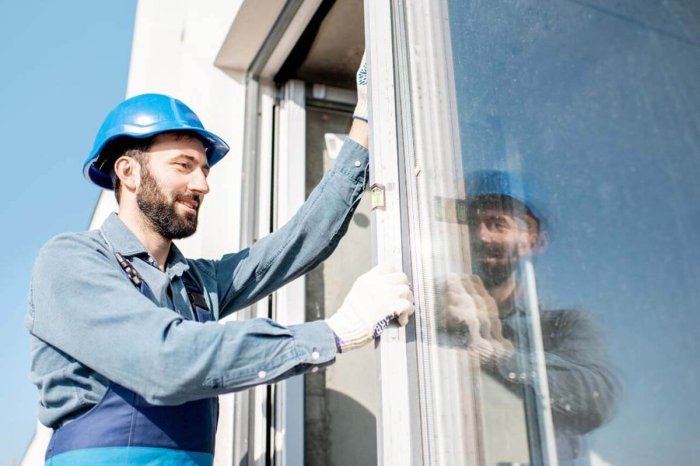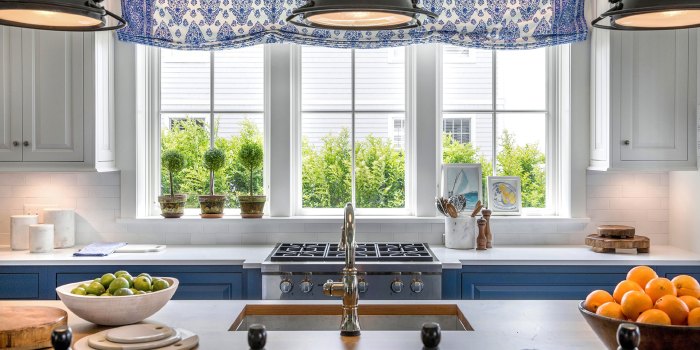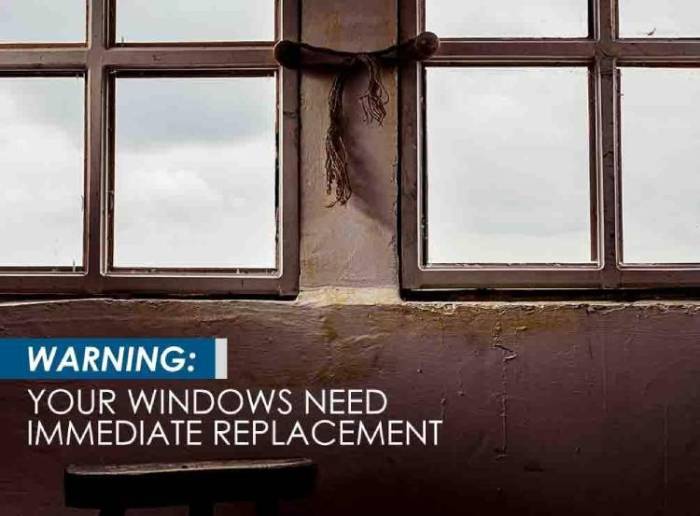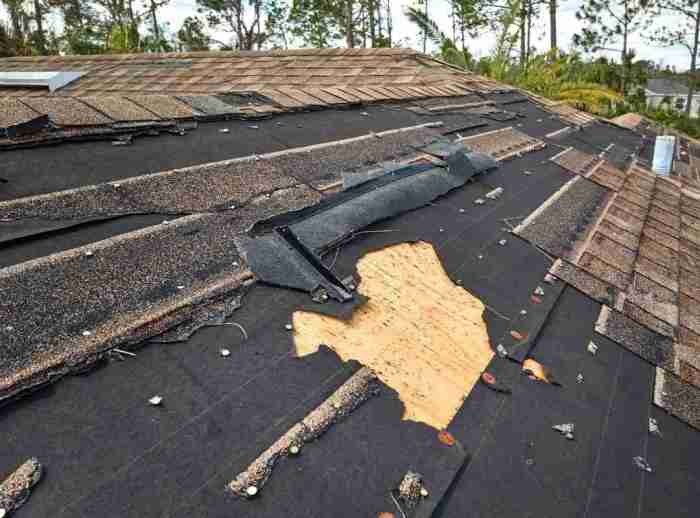The Best Time of Year to Replace Your Windows: A Comprehensive Guide
Exploring the ideal timing for window replacements, this guide delves into various factors to consider when planning this home improvement project. From weather conditions to energy efficiency upgrades, we uncover the best strategies for a successful window replacement.
Factors to Consider for Window Replacement Timing
When planning to replace your windows, several factors come into play to ensure a successful and cost-effective project. Let's delve into the key considerations for determining the best time of year for window replacement.
Importance of Weather Conditions
Weather conditions play a crucial role in the window replacement process. It is essential to choose a time when the weather is mild and predictable to avoid any disruptions or complications during installation. Harsh weather conditions such as extreme cold, heavy rain, or high winds can make the replacement process challenging and compromise the quality of work.
Opting for a season with moderate temperatures and minimal precipitation, like spring or fall, can ensure smooth and efficient window installation.
Impact of Seasonal Discounts
Another significant factor to consider is the impact of seasonal discounts on window replacement costs. Many window manufacturers and contractors offer discounts and promotions during off-peak seasons to attract more customers. By taking advantage of these seasonal deals, you can save a substantial amount of money on your window replacement project.
It is advisable to research and compare prices during different times of the year to identify the most cost-effective option without compromising on quality.
Availability of Contractors
The availability of contractors can vary depending on the time of year. Peak seasons, such as spring and summer, are typically busy periods for window installation professionals, leading to higher demand and potentially longer wait times for scheduling. On the other hand, scheduling your window replacement during the off-peak seasons, like winter, may result in quicker availability and more flexible scheduling options.
It is essential to consider the contractor's workload and availability to ensure timely completion of your window replacement project.
Best Time of Year for Energy Efficiency Upgrades

When it comes to energy efficiency upgrades like window replacements, the timing of the project can have a significant impact on the overall effectiveness of the improvements. Different seasons can affect energy efficiency in various ways, making it crucial to consider the best time of year for such upgrades.Window replacement can help in reducing energy bills during specific times of the year by providing better insulation and reducing air leakage.
In colder months, new windows can prevent heat from escaping, resulting in lower heating costs. Conversely, during the warmer months, energy-efficient windows can help keep the cool air inside, reducing the need for excessive air conditioning.
Impact of Seasons on Energy Efficiency
- During winter, old windows may allow cold drafts to enter the house, leading to increased heating costs.
- Spring and fall are transitional seasons where temperatures fluctuate, highlighting the importance of well-insulated windows to maintain indoor comfort.
- In summer, energy-efficient windows can block out heat from the sun, reducing the reliance on air conditioning and lowering cooling expenses.
Correlation Between Energy Savings and Window Replacement Timing
Properly timed window replacements can result in immediate energy savings by optimizing the insulation and efficiency of the home.
- Replacing windows before the onset of extreme weather conditions can help homeowners maximize energy savings throughout the year.
- Choosing the right time to upgrade windows can also ensure that the investment pays off quickly through reduced energy bills.
Weather-Related Considerations
Extreme temperatures and weather conditions can significantly impact the window replacement process. It is important to consider the following factors to ensure a successful installation.
Impact of Extreme Temperatures
Extreme temperatures, whether hot or cold, can affect the sealants and adhesives used during window installation. In very cold weather, the materials may not set properly, leading to gaps and drafts. On the other hand, in extreme heat, the materials may dry too quickly, affecting the adhesion and longevity of the installation.
Risks of Replacing Windows During Rainy Seasons
Replacing windows during rainy seasons can pose several risks. Moisture can interfere with the adhesion of sealants and caulking, leading to leaks and water damage. Additionally, rainy weather can make the installation process more challenging for the contractors, potentially delaying the project
Ideal Weather Conditions for Successful Window Replacement
The ideal weather conditions for window replacement are moderate temperatures, with low humidity and minimal chances of rain. Spring and fall are often considered the best seasons for window replacement, as the weather is usually mild and conducive to a successful installation.
Avoiding extreme temperatures and rainy seasons can help ensure a smooth and effective window replacement process.
Seasonal Trends in Window Replacement

When it comes to replacing windows, the timing can greatly impact the process and overall outcome. Let's dive into the seasonal trends in window replacement to understand when it's the best time to tackle this home improvement project.
Popularity of Window Replacement During Different Seasons
Window replacement tends to be more popular during specific seasons due to various factors such as weather conditions, availability of contractors, and homeowners' schedules. Here is a breakdown of the popularity of window replacement during different seasons:
- Spring: Spring is a popular time for window replacement as the weather starts to warm up, making it easier to work on the project. Additionally, homeowners often tackle renovation projects during this season to prepare their homes for the upcoming summer months.
- Summer: While summer is a busy time for most contractors, some homeowners prefer to schedule window replacements during this season to take advantage of longer daylight hours and pleasant weather conditions.
- Fall: Fall is another popular season for window replacement, as the weather is still relatively mild, and contractors are typically less busy compared to the summer months. Homeowners may also opt for window replacements in the fall to prepare for the colder winter months.
- Winter: Window replacement is less common during the winter months due to the cold weather conditions. However, some homeowners may choose to replace windows in the winter to improve energy efficiency and insulation before the coldest months set in.
Industry Trends Related to Timing of Window Replacements
According to industry data, window replacement projects tend to peak in the spring and fall seasons. Contractors are typically busier during these times, so homeowners are advised to schedule their window replacements in advance to secure a spot in the contractor's calendar.
Additionally, some contractors may offer discounts or promotions during off-peak seasons to attract more customers.
Seasonal Factors Influencing the Decision to Replace Windows
Several seasonal factors can influence the decision to replace windows, including:
- Weather conditions: Extreme weather conditions, such as high temperatures in the summer or cold drafts in the winter, can prompt homeowners to replace their windows for better insulation and energy efficiency.
- Seasonal discounts: Some window manufacturers and contractors offer discounts or promotions during specific seasons, making it a more cost-effective time to replace windows.
- Preparation for seasonal changes: Homeowners may choose to replace windows in anticipation of seasonal changes, such as preparing for the hot summer months or the cold winter season.
Closing Summary

In conclusion, understanding the best time of year to replace your windows is crucial for maximizing energy savings and ensuring a smooth installation process. By considering the seasonal trends and weather-related considerations, you can make an informed decision that benefits your home in the long run.
Essential FAQs
When is the best time of year to replace windows?
The best time is usually during the spring or fall when the weather is moderate and contractors are more readily available.
How do different seasons affect energy efficiency after window replacements?
Windows installed in colder months can help retain heat, while those in warmer months can improve cooling efficiency.
What are the risks of replacing windows during rainy seasons?
Moisture can affect the installation process and potentially damage the new windows, so it's best to avoid rainy seasons.
Are there any seasonal discounts available for window replacements?
Some contractors offer discounts during slower seasons like winter, but it's best to inquire with local providers.




